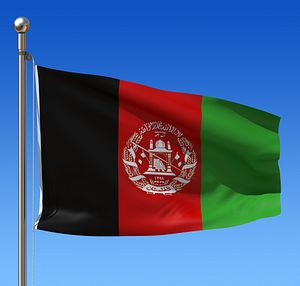With U.S. Secretary of State John Kerry heading for Beijing, all eyes are on the upcoming U.S.-China Strategic and Economic Dialogue to take place Wednesday and Thursday in Beijing. But that’s not the only diplomatic gathering taking place in China this week. Foreign Ministry spokesperson Hong Lei announced today that a preliminary session of the Istanbul Process will take place in Beijing on July 10.
The Istanbul Process is a regional platform established in 2011 to encourage cooperation between Afghanistan and its neighbors on security, economic, and political issues. The process includes 14 regional countries (among them Afghanistan, China, Russia, Kazakhstan, India, Pakistan, Iran, and Turkey) and 28 “supporting partners” (both extra-regional countries, like the U.S. and the U.K. and international bodies like the UN). The fourth ministerial meeting is scheduled to take place in Tianjin at the end of August; the meeting this week (with participants at the vice-ministerial level) is in preparation for the August meeting.
China seems to have picked 2014 as the year of multilateral diplomacy — China is playing host to a number of international gatherings, including the Conference on Interaction and Confidence Building Measures in Asia (CICA) in May and the upcoming November APEC summit to be held in Beijing. But amidst all these high-level meetings, it could be China’s hosting of the Istanbul Process that has the greatest impact.
China and the world are keeping a close eye on Afghanistan as it undergoes political, economic, and security transitions this year. Afghanistan is in the midst of a presidential election, and as Ankit has noted for The Pulse blog, accusations of fraud have already undermined the run-off election process. Meanwhile, Afghanistan is also preparing for the withdrawal of NATO troops and the restructuring of its economic to be more sustainable. Any one of these transitions would be tricky; all three happening at roughly the same time presents the possibility for disaster.
China is particularly sensitive to Afghanistan’s future. Foreign Minister Wang Yi has emphasized that Afghanistan’s fate will directly affect security and stability in western China. Unrest and terrorism in Xinjiang is already a major concern for Chinese leaders; a failed state on Xinjiang’s western border would be a nightmare for Beijing. Accordingly, China has been stepping up its engagement with Afghanistan during this crucial period. Wang Yi visited Kabul in February of this year, and Afghan President Hamid Karzai met with Xi Jinping on the sidelines of CICA back in May. At both meetings, it was clear that security concerns are playing an increasing role in the relationship.
This is not to say that China’s economic engagement with Afghanistan is losing ground. Chinese investment and cooperation, particularly in the mining sector, is seen as a potential foundation for Afghanistan to rebuild an independent economy. Meanwhile, China’s “Silk Road Economic Belt” project would build up crucial regional infrastructure connecting the Central Asia countries, giving Afghanistan access to markets beyond its borders (which, as The Interpreter points out, will be crucial to Afghanistan’s future economic growth).
The Istanbul Process itself focuses just as much on the “softer” issues (such as education and disaster management) as it does on counterterrorism and security issues. Educational exchanges, cooperation on disaster management and prevention, and anti-drug trafficking operations can help build up a foundation of trust between Afghanistan and other regional partners. But at the end of the day, the ultimate goal remains ensuring Afghanistan’s stability. Even economic and trade cooperation, while attractive in and of itself, can also be seen as a means to an end: without a stable economy, the government in Kabul could quickly lose control of the country.
The preparatory meeting to be held this week will do the hard work of hammering out a draft resolution for the August ministerial meeting of the Istanbul Process. And China, as the host of the meeting during Afghanistan’s triple transition period, will have a large influence on the final results. Beijing has increasingly been seeking a leadership role in the region, through its influence in CICA and the Shanghai Cooperation Organization as well as its vision for a Silk Road Economic Belt that will integrate the entire region. The 2014 Istanbul Process gives China the perfect opportunity to take a leadership position on an issue of major regional significance — and one that will have major domestic implications for Beijing.

































